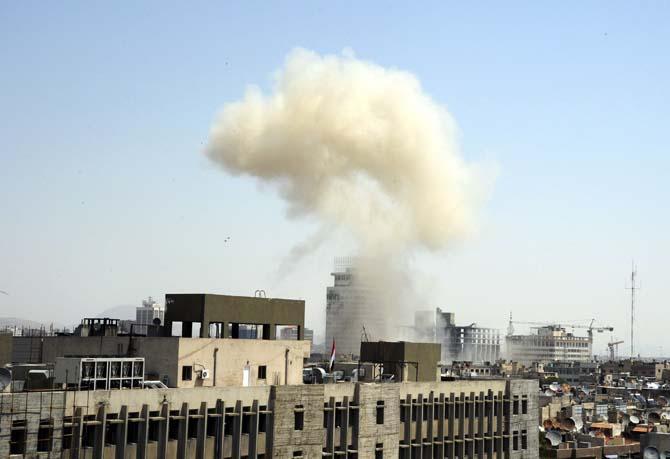Last week, Israeli intelligence reportedly confirmed that elements of the Syrian Army loyal to President Bashar al-Assad used chemical weapons to murder civilians in Aleppo.
Thus far in Syria, 70,000 people have been killed, millions have been made homeless, and hundreds of thousands of refugees continue to stream across the borders into Turkey and Jordan — creating what the United Nations has characterized as “the worst humanitarian crisis in a decade.”
Syrian intervention has quickly become a damned if you do, damned if you don’t scenario for the United States and our NATO allies.
On the one hand, another conflict in the Middle East simply is not an option for a war-weary American public. The potential loss of life and expense involved is just too prohibitive.
The last thing the U.S. wants is another Iraq.
On the other hand, the longer the U.S. and NATO waits, the more support radical elements of the Free Syrian Army seems to receive.
Earlier this month, the New Yorker ran a story on how across the region the Free Syrian flag has steadily been replaced by the infamous Black Banner, the preferred symbol of Islamic militants worldwide.
When a young fighter was asked why they chose to change their colors, he responded that the rebels felt abandoned by the West — and that God was the only ally Syria had left.
But with the possible use of chemical weapons, the scenario has become even more dire for the people of Syria — and for the politicians of America.
Last August, President Barack Obama publicly vowed retaliation if Bashar al-Assad or his men broke open their massive stockpile of illegal chemical weapons.
The president said he was drawing a red line at the use of such weapons and that our response would be swift and severe.
And now it appears as though Bashar has called the president’s bluff.
The United States was once accurately described as a shining city upon a hill — a beacon of hope and freedom for the world.
That reputation has been severely tried over the last 10 years of war and foreign intervention.
But we cannot have invaded Iraq in 2003 on the unproven pretense of weapons of mass destruction and then turn around in 2013 and refuse to help the Syrian people who are credibly facing that exact threat.
If our executive fails to follow through on his promise, we will prove to the people of Syria, and the world, that their lives are worthless to us and that we have only ever been motivated by our own agenda and material gain.
We are facing a real repeat of the Kurdish-Iraqi uprising of 1991.
In ’91, following Operation Desert Storm, the U.S. pledged support to rebels in northern and southern Iraq and then sat idly by while Saddam Hussein gassed tens of thousands of Iraqis.
That failure to intervene plagued us when we returned to that country a decade later. The people didn’t trust us, and rightly so.
Intervention in Syria does not need to be another Iraq, circa ’91 or ’03 — the Syrian people are already doing the heavy lifting.
Our recent assistance in the intervention in Libya and France’s recent incursion into Mali has provided us with an effective framework to pull off such an operation.
Now is the time for the United States to apply the lessons we’ve learned over the last 20 years.
Now is the time for Syrian intervention.
Nicholas Pierce is a 23-year-old history senior from Baton Rouge.





